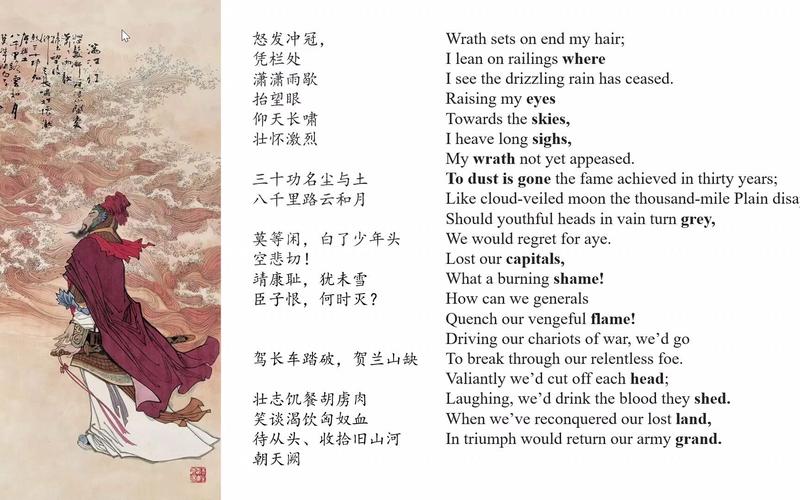Translation of "风花雪月" Poetic Phrases into English
When it comes to translating "风花雪月" into English, we encounter the challenge of capturing the full depth and beauty of these poetic phrases. Let's break down each character and find the most appropriate translations:
The character 风 (fēng) represents wind, which is often associated with movement, change, and freedom. In poetic contexts, it can symbolize vitality and dynamism.
花 (huā) refers to flowers, representing beauty, fragility, and the transient nature of life in traditional Chinese poetry. It conveys themes of love, passion, and impermanence.
雪 (xuě) translates to snow, symbolizing purity, tranquility, and the arrival of winter. In poetry, snow is often used to evoke emotions such as loneliness, introspection, and renewal.
月 (yuè) signifies the moon, a symbol of beauty, mystery, and the passage of time. Moon imagery is commonly associated with romance, nostalgia, and the interconnectedness of all things.
Considering the nuanced meanings of each character, a literal translation of 风花雪月 (fēng huā xuě yuè) could be:

- Wind, Flowers, Snow, Moon
However, to convey the poetic essence and cultural connotations of these characters, we can opt for a more interpretative translation:
- The Beauty of Nature and Seasons
This translation aims to capture the imagery of the natural world and the cycles of life and time encapsulated in the phrase 风花雪月. It reflects the lyrical quality and emotional depth inherent in these poetic expressions.
In conclusion, 风花雪月 symbolizes a blend of beauty, grace, and symbolism found in traditional Chinese poetry, inviting readers to contemplate the profound connections between nature, emotions, and the human experience.












评论